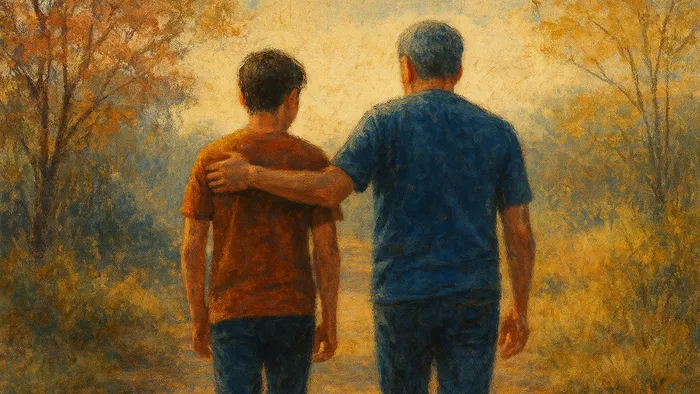
Through the lens of a father’s journey with his autistic son, this opinion piece highlights why acceptance - not just awareness - is essential in building a world that values neurodivergent minds for who they truly are.
Image: DFA / Illustration created with DALL·E
APRIL is Autism Acceptance Month. Not just awareness - acceptance. And for families like mine, that distinction matters more than most people realise.
My son is in his early teens. He’s autistic. He’s sharp, curious, and has a sense of humor that catches you off guard in the best way. He can talk your ear off about game design, music or obscure historical facts. He also gets overwhelmed in loud, chaotic places. He finds social rules confusing. He needs time to process things. None of this makes him less. It just makes him who he is.
Before his diagnosis, we were doing what most parents do - trying to figure things out as we went. Why did noises and certain smells overwhelm him? Why did he get so distressed by everyday situations? Why did he seem out of sync with other kids his age? When we finally got the diagnosis, we were hit with a wave of information, and a lot of it focused on what was “wrong” with him.
That was the first thing we had to unlearn: our son didn’t need fixing. He needed understanding. And he needed a world that didn’t ask him to mask who he is to be accepted.
That’s what Autism Acceptance Month is about. Not fear. Not sympathy. Not lighting things up in blue. It’s about real inclusion and respect. It’s about listening to autistic people - not just the parents and professionals who talk about them, but the teens and adults who are them.
The truth is, autism acceptance doesn’t require a big campaign. Sometimes it looks like a teacher who lets a learner wear headphones during class. Or a friend who gets that hanging out might mean one-on-one time instead of going to a crowded mall. Or a school counselor who sees beyond behaviour and asks, “What does this learner need to feel safe here?”
I should also say this: I don’t speak for autistic people or their families. Autism lies on a spectrum, and every autistic person is different - some speak, some don’t, some need high levels of support, others live independently. My experience is just one thread in a much bigger picture.
As a father, I worry like any parent does. I worry about how the world will treat my son as he gets older. Teen years are hard enough without being autistic in a society that still sees neurodivergence as a problem to be solved. My job - and the job of anyone who claims to care - is to make sure he’s not forced to hide the parts of himself that don’t fit other people’s expectations.
Autism isn’t a look. It’s not a phase. It’s not something kids “grow out of”. It’s a different way of experiencing and interacting with the world. My son isn’t broken - he just sees things differently. And once you stop trying to force him into a mold, you start to see how valuable that difference really is.
That difference is why he notices details other people miss. It’s why he asks questions that challenge the obvious. It’s why he has a level of focus and passion most adults would envy. But if we’d spent all our time trying to make him "normal", we would’ve missed all of that. We would’ve pushed him to mask, to blend in, to disappear.
Throughout history, it’s often been the people who think differently who move the world forward. The intense focus, unique problem-solving, and pattern recognition that many autistic people possess have shaped science, technology, art, and innovation in ways most people don’t even realise. From breakthroughs in physics and mathematics to creative revolutions in storytelling and design, neurodivergent minds have always been part of humanity’s progress - they just haven’t always been recognised for it.
And yet today, too many autistic kids are still taught: conform or be left out. Instead of valuing those differences, we try to manage or mute them. But acceptance means building systems where they don’t have to conform just to be included. It means letting them show up as their full selves - stimming, scripting, info-dumping and all - and meeting them with respect, not correction.
If there’s one thing I hope people take away this month, it’s this: autistic people don’t need to be more like us. We need to be more open to who they already are.
Because when we stop trying to mold them into something they’re not, we start to see who they really are - and how much better off we all are when we make room for that difference.
* For more information, resources, and support, visit Autism South Africa at www.aut2know.co.za
Related Topics: